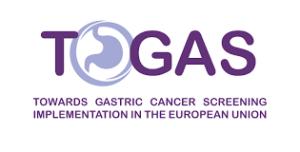Research
GASTRO CENTRS has been actively involved in various clinical studies since 2005 and has conducted more than 30 studies to date in the treatment and monitoring of patients with ulcerative colitis, Crohn’s disease, gastroesophageal reflux disease with esophagitis (GERD), irritable bowel syndrome, and iron deficiency anemia.
Within the framework of clinical trials, the clinical effects of new medications are evaluated, including the assessment of risks and effectiveness. All clinical trials are strictly regulated and conducted in accordance with international guidelines and Good Clinical Practice (GCP) standards, which ensure that patient confidentiality and safety are the highest priorities. At GASTRO CENTRS, only those clinical trials approved by the State Agency of Medicines and the Ethics Committee are conducted.
For the successful and high-quality implementation of clinical trials, GASTRO CENTRS has a dedicated Research Department, which includes a gastroenterologist – principal investigator, a gastroenterologist – sub-investigator, highly qualified nurses, and a clinical trial coordinator.
Interested in participating in studies?
To apply for participation in studies, call the phone number: 28658080 or write to the email: [email protected]
GASTRO CENTRS currently offers the opportunity to participate in clinical trials for patients with active ulcerative colitis and Crohn’s disease, for whom standard therapy has not been sufficiently effective or feasible.
Main benefits for the patient:
- opportunity to receive effective free therapy within the framework of the study;
- special comprehensive free diagnostics performed by GASTRO CENTRS gastroenterologists;
- long-term continuous therapy and monitoring under the supervision of GASTRO CENTER professionals within the framework of funded healthcare.
Pētījumu projekti endoskopijās
GISTAR
Multicenter randomized study to reduce gastric cancer-related mortality through H. pylori eradication and pepsinogen level determination
The scientific study is designed to explore new strategies for reducing gastric cancer mortality in high-risk areas.
Study-related activities:
- A questionnaire is completed that gathers information on lifestyle factors, as well as previous illnesses and complaints.
- Blood tests are performed to identify signs of gastric atrophy (a condition associated with an increased risk of stomach cancer), and a fecal occult blood test is carried out to screen for patients at elevated risk of colorectal cancer.
Patients aged 40 to 64 are eligible for inclusion.
Project website: https://www.gistar.eu/
The GISTAR study is partially funded by the European Regional Development Fund (ERDF) within the framework of Measure 1.1.1.1 “Practical Research” Round 2, Project ID No. 1.1.1.1/18/A/184 “Optimization of H. pylori eradication schemes for large-scale gastric cancer prevention measures”, and by the Latvian programme for Fundamental and Applied Research Projects (FLPP), Project No. lzp-2018/1-0135 “Study on the implementation of a comprehensive approach to reduce mortality from gastric cancer by eradicating H. pylori infection and early detection of precancerous gastric conditions.”
TOGAS
Towards the Implementation of Gastric Cancer Screening in the European Union
The goal of the TOGAS project is to develop recommendations for the implementation of gastric cancer screening in EU countries.
Currently, there is no widely available effective screening method for the early detection of gastric cancer in Europe. The overall aim of the TOGAS project is to provide the missing evidence-based knowledge that can be used to design, plan, and implement appropriate gastric cancer prevention and screening across the EU.
Study objective: to investigate whether performing a screening gastroscopy (stomach examination) alongside a screening colonoscopy (bowel examination) can effectively identify individuals at increased risk of gastric cancer who should undergo follow-up examinations or treatment to prevent the development of the disease.
Study-related activities:
- To participate in the study, you will be enrolled in the Biobank of the University of Latvia and Riga East University Hospital.
- A blood sample will be taken and stored in the Biobank. For the purposes of the study, levels of pepsinogens and Helicobacter pylori antibodies will be measured in the blood. Pepsinogens indicate the functional state of the stomach lining. The participant will be able to receive these results, although the analysis may take up to two years – however, such testing typically needs to be done only once in a lifetime.
- Endoscopy and colonoscopy will be performed in accordance with local and international practice. Samples will be taken from the stomach to determine whether you have a precancerous condition, whether there is an increased risk of developing gastric cancer, and whether you have a Helicobacter pylori infection.
- Several photographs will be taken of different parts of the stomach, which may be used in the AIDA project to develop an artificial intelligence tool that could help doctors detect more subtle changes in the stomach in the future.
Participants included in the study are patients aged 50 to 74 who are scheduled for a screening or follow-up colonoscopy for colorectal cancer prevention.
Participants must not have serious complaints or various symptoms related to gastrointestinal disorders, or known precancerous gastric conditions (such as gastric atrophy, intestinal metaplasia, or dysplasia).
Project website: https://www.togas.lu.lv/
The project “Towards Gastric Cancer Screening Implementation in the European Union” (TOGAS) has received funding from the European Union’s EU4Health programme under grant agreement No. 101101252.
AIDA
Artificial Intelligence-Based Diagnostic Assistant for Detecting Gastric Inflammation
AIDA is a multidisciplinary, artificial intelligence-based assistance tool that supports physicians in diagnosing precancerous inflammation, offers personalized therapeutic strategies for medical treatment, and provides tailored recommendations for monitoring patients’ health status, thereby promoting gastric cancer prevention.
Study objective: in this study, images are taken from the stomach and microscopic samples (biopsies) are collected for histological examination. The microscopic findings will be combined with the stomach images. Using the collected data, the aim is to develop an artificial intelligence-based tool that will assist doctors during examinations in detecting early changes in the stomach, even without the need for biopsy sampling. This is particularly important for the early diagnosis of precancerous conditions.
Study-related activities:
- To participate in the study, you will be enrolled in the Biobank of the University of Latvia and Riga East University Hospital. Biobanka is a collection of various samples used in the study of various diseases to develop new diseases and cancer diagnostics and treatment methods.
- Blood samples will be collected and stored in the Biobank.
- Upper endoscopy/gastroscopy will be performed in accordance with local and international practice. Samples will be taken from the stomach to determine whether you have a precancerous condition, to assess your risk of developing gastric cancer, and to check for Helicobacter pylori infection. You will receive the biopsy results two weeks after the examination.
- Several photographs will be taken of different parts of the stomach, which will be used in the project to develop an artificial intelligence tool that could help doctors detect subtle changes in the stomach at an early stage, including early gastric cancer.
Eligible participants are patients aged 18 to 70, with a previously diagnosed intestinal metaplasia in the stomach (priority group).
You must not:
- Have used antibiotics within four weeks prior to the endoscopy.
- Have used proton pump inhibitors or bismuth-containing medications within two weeks prior to the procedure.
- Gastroscopy is being performed for the management of other conditions, such as esophageal varices and/or for therapeutic procedures (e.g., endoscopic dilation, tube placement, endoscopic resection).
- Have other significant gastric diseases or a history of stomach surgery.
Project website: https://www.aidaeuproject.org/
The project has received funding from the European Union’s Horizon Europe programme under the subprogramme “Staying Healthy”, in accordance with grant agreement No. 101095359.
PH.AN.TO.M
Topographic Mission: Phenotyping of the Gastric Angle
The study aims to characterize the gastric angle mucosa in both healthy stomachs and under various pathological conditions, in order to draw conclusions about the significance of gastric angle biopsy.
The study includes patients aged 18 to 70 who are scheduled to undergo gastroscopy, both those with no endoscopic findings (no pathology) and those with gastric abnormalities.
Participants must not have a known early or advanced invasive neoplasia (either from medical history or already confirmed endoscopically), or have undergone any type of previous gastric surgery.


